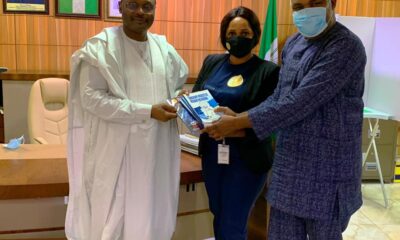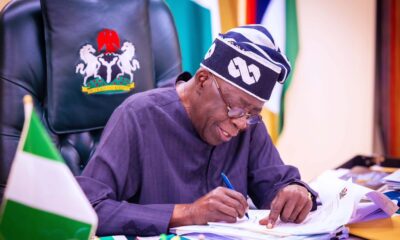oil and gas
Tinubu Grants Licenses for Kolmani Oil Initiative
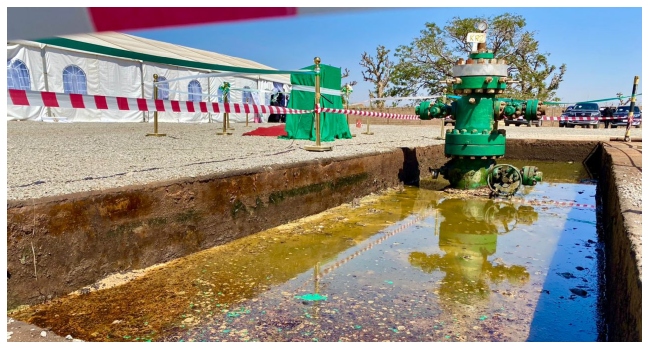
Recently, Bayo Ojulari, the Group Chief Executive of the Nigerian National Petroleum Company Limited, announced that the state-owned energy company is set to recommence oil drilling in the Kolmani oil field.
President Bola Tinubu has sanctioned the issuance of essential regulatory licenses for the Kolmani Integrated Development Project, a significant oil exploration venture worth billions, located between Bauchi and Gombe states. This update was shared by the Minister of State for Petroleum Resources (Oil), Senator Heineken Lokpobiri, during the inauguration of the permanent site of the Bauchi Oil and Gas Academy in Alkaleri Local Government Area of Bauchi State, according to a statement from his Special Adviser on Media and Communications, Nneamaka Okafor, released on Sunday.
The statement highlighted the importance of activating all national facilities aimed at transforming Nigeria’s oil sector. “This led to President Bola Ahmed Tinubu’s authorization to ensure that all pending critical regulatory licenses for the Kolmani Integrated Development Project were granted. I emphasized this during the launch of the permanent site of the Bauchi Oil and Gas Academy in Alkaleri, situated in the Kolmani region,” he was quoted as saying.
He further noted that the President’s vision is centered on leveraging the energy sector’s full potential to drive national prosperity. He remarked that with Bauchi State embracing this initiative through the establishment of the academy, the state is positioning itself as a key player in developing the human capital essential for advancing the sector.
“Given our substantial fossil fuel reserves, the Federal Government, in collaboration with the Petroleum Technology Development Fund (PTDF), continues to promote advancements in human capacity and technology. I anticipate that the Bauchi Oil and Gas Academy will establish a robust partnership with PTDF, ensuring long-term success and sustainability for the sector,” the statement concluded.
The Kolmani Integrated Development Project, which was initially inaugurated in November 2022, signifies the onset of oil exploration in Northern Nigeria and is located in the Kolmani River II oil field, a border area between Bauchi and Gombe states.
In a related statement, Bauchi State Governor, Senator Bala Mohammed, expressed gratitude for the Federal Government’s support and reaffirmed the state’s dedication to the academy’s success. “This institution will lay the groundwork for skill acquisition and innovation that will benefit not only Bauchi State but the entire nation,” the governor remarked.
News
HURIWA decries Appeal Court’s rejection of environmental pollution as a human right abuse
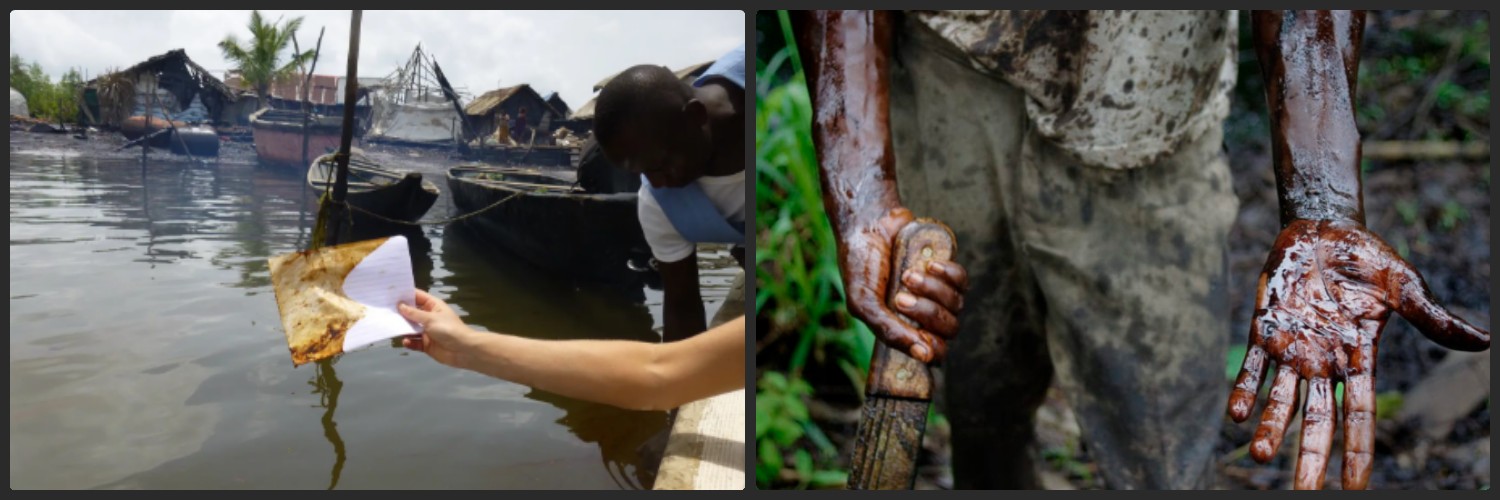
Prominent pro-democracy and civil rights advocacy group: HUMAN RIGHTS WRITERS ASSOCIATION OF NIGERIA (HURIWA) has disagreed with the ruling at the weekend by the Court of Appeal that failure of government to take measures to stop environmental pollution is a human right violation even as HURIWA said environmental damage caused by pollution impedes the enjoyment of the constitutionally guaranteed fundamental human rights and therefore amounts to a human right abuse. The Rights group said in virtually all legal jurisprudence, environmental pollution left untreated by government constitutes gross human rights violations.
HURIWA recalled that the Court of Appeal in Abuja, last Friday, prohibited the National Human Rights Commission (NHRC) from constituting a Special Panel of Investigation to entertain or determine complaints regarding alleged oil spillages and oil pollution in Nigeria.
This perpetual prohibition order was issued in a judgment delivered by Justice Okong Abang of the Court of Appeal, who upheld the appeal filed by the Nigerian National Petroleum Company (NNPC)’s lawyer, Olurotimi Aju Esq., against the NHRC.
The case was marked CA/A/864/2018.
The appellant, dissatisfied with the decision of the Federal High Court, Abuja Division—delivered by Justice Binta Nyako on March 23, 2018, which had affirmed NHRC’s powers to investigate and issue orders regarding oil spillage complaints—sought a reversal.
HURIWA recalled that the appellant approached the Court of Appeal, urging it to allow the appeal and set aside the judgment of the court below, made on March 23, 2018.
The lawyer asked the Court of Appeal to affirm its originating summons, which sought, among other things, the following:
“ORDERS OF PROHIBITION AND PERPETUAL INJUNCTION prohibiting and restraining the Special Panel of Investigation constituted by the Respondent from enquiring into and deliberating upon, or from continuing to enquire into and to deliberate upon, or from further enquiring into and deliberating upon, from compelling the attendance of the Applicant before it, from determining or from continuing to determine all or any questions, and/or from acting, howsoever, on the Complaints in respect of alleged oil spillages and oil pollution made against the Applicant in Complaint No: C/2016/320697-320704/HQ/2016: All Farmers Association of Nigeria, Akwa Ibom State Chapter & Ors v. Addax Petroleum Development (Nigeria) Limited.”
In it’s verdict the Appeal Court in a unanimous decision read by Justice Abang stated regarding oil spillage thus:
“The only authority that has exclusive jurisdiction—indeed, jurisdiction not shared by any person or authority—to make enforceable orders regarding oil spillage and similar activities of oil pollution of the environment under section 251(1) of the 1999 Constitution (as amended) is the Federal High Court.”
“ Certainly, not the respondent (NHRC) under any guise.”
The judge emphasized that judicial power under the 1999 Constitution is not vested in the National Human Rights Commission and its panels, but in the courts established by the Constitution.
The judge stated that the NHRC ought to have directed complainants of oil spillage to the appropriate organ, rather than hiding under the cloak of an alleged breach of fundamental rights to “violently usurp the constitutional powers of the Federal High Court.”
He agreed with the NNPC’s position that oil pollution is not a fundamental human rights issue and that it is beyond the NHRC’s powers to set up a special investigation panel with quasi-judicial (court-like) powers to inquire into such issues.
“It is incumbent on the court to observe the principle of judicial precedent. The lower court is bound by the decision of the superior court,” the judge said.
As a result, Justice Abang allowed the NNPC’s appeal, nullified the decision of the trial court dated March 23, 2018, and set it aside.
He granted the order of prohibition against the NHRC.
HURIWA wondered how Nigerian Appeal Court has stripped citizens of their fundamental human right to a clean environment which is necessary for all the first-generation rights when in almost all jurisdictions, environmental right is recognised as a fundamental human rights.
HURIWA recalled that in January this year, the European Court of Human Rights had for the first time ruled that failures to address pollution amounted to human rights violations – a decision with potentially significant implications for the private sector as well as national and regional governments.
The ruling, announced on Friday (31 January), came after a group of residents from Italy’s Campania region lodged a legal case at the Court, on the grounds that local authorities’ failure to implement proper waste management system has resulted in soil, water and air pollution which is affecting public health.
Some neighbourhoods in the region, which is home to three million people, are locally known as ‘land of fires’ for their flytipping. The issue has been going on for more than three decades.
Epidemiologist Dr Fabrizio Bianchi said: “The local health impacts are clear – from elevated rates of cancer and cardiovascular disease to digestive and urinary ailments.”
Environmental law firm ClientEarth represented a group of local people at the European Court of Human Rights, arguing that failures overseen by the government, local authorities and private sector were undermining residents’ right to life (Article 2 of the European Convention on Human Rights) and right to private life (Article 8).
ClientEarth highlighted the “principle of prevention” and the “precautionary principle”, which require authorities to take early action to tackle pollution that may expose the public to harm.
Unlike at many courts, rulings at the European Court of Human Rights need to jointly be made by between three and 15 judges, depending on the importance and complexity of the case. Despite disagreements between the judges on the interpretation of the Convention, notably on how local pollution differs from the global climate crisis, they reached an agreement.
The court ruled that the government’s failure to appropriately address this issue, even though it was caused by private parties, has put Italy in breach of human rights laws.
ClientEarth lawyer Malgorzata Kwiedacz-Palosz said: “This ruling confirms that our human rights rely on a healthy environment – including healthy air, water and soil – and that it is on governments to protect people from environmental threats to life, no matter who causes these.
“The right to life triggers strong protection obligations – and obligations that governments must engage with proactively, diligently and in a timely manner – because the impacts of its violation are irreversible harm and the loss of life itself.”
The ruling should have ramifications for existing and prospective cases across the EU.
HURIWA has therefore urged the Supreme Court to follow the universal rule by recognising the failures of the Nigerian government to compel the cleaning up of polluted environment as abuses of fundamental rights of citizens since Environmental pollution deprives the citizens of virtually all the core human rights including the right to life since it leads to the deprivation of sources of livelihoods for citizens living in places whereby the environments are continuously polluted especially through crude oil exploration.
COMRADE EMMANUEL ONWUBIKO,
NATIONAL COORDINATOR,
HUMAN RIGHTS WRITERS ASSOCIATION OF NIGERIA (HURIWA).
July 21st, 2025.
oil and gas
Crude Oil Prices Sink as Trump Delays Decision on Iran Conflict
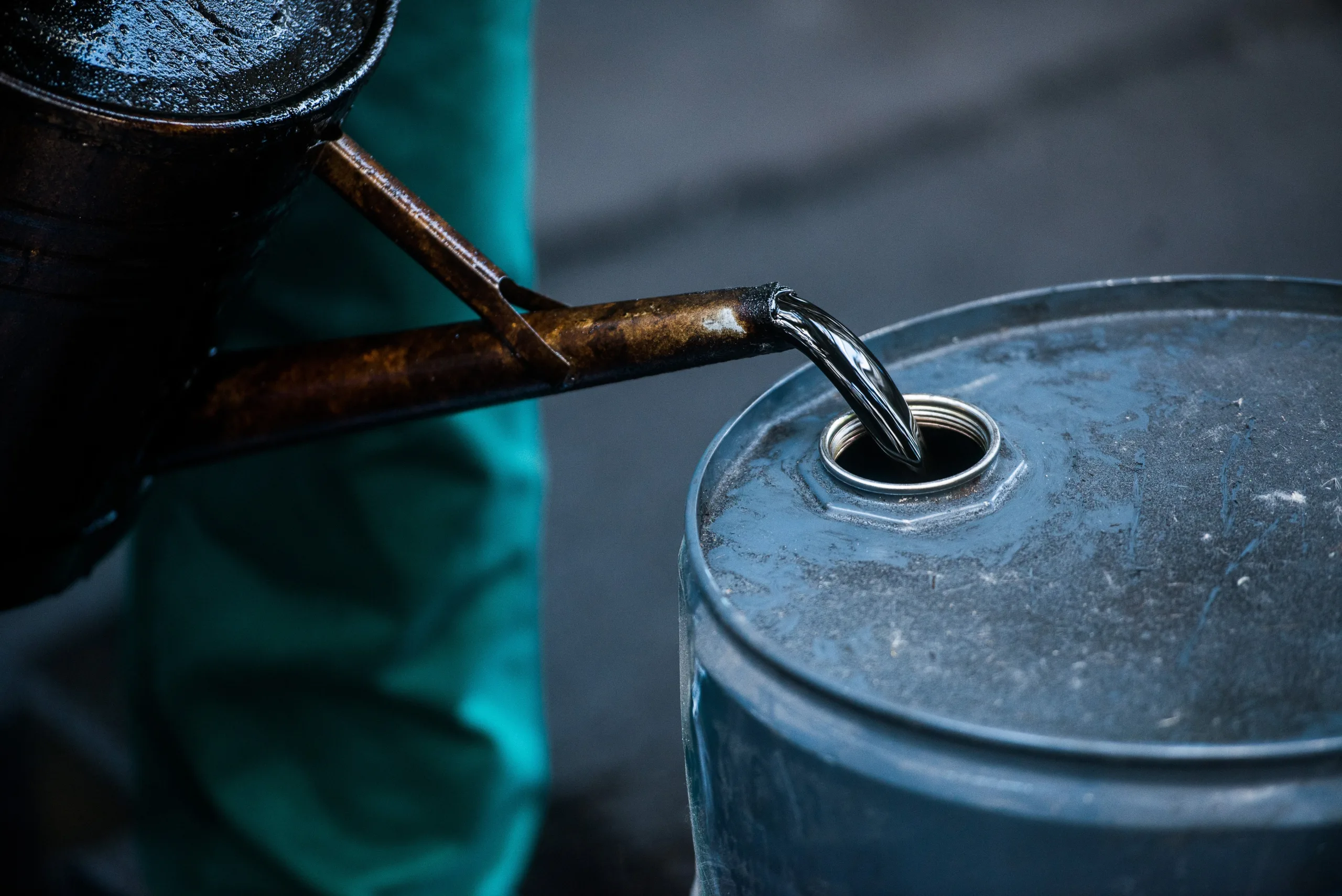
Oil prices fell sharply on Friday, and stock traders tried to finish a rocky week on a good note after Donald Trump said he would take two weeks to decide if the United States would join Israel’s fight against Iran.
Many believed Trump might support Israel’s actions, but he announced on Thursday that he would wait and see if there could be a diplomatic solution to ease the rising tensions.
His comments gave some hope that a larger war could be avoided between the two nations. Since Israel first attacked Iran last Friday, both sides have traded strikes and issued strong warnings, but experts believe the situation has not yet escalated to a critical level.
In Geneva, European foreign ministers were scheduled to meet with their Iranian counterpart on Friday. White House Press Secretary Karoline Leavitt shared that Trump said, “I will decide within the next two weeks whether to take action, as there is a chance for negotiations with Iran.” Leavitt added, “The president is always ready for diplomacy but is also prepared to act if necessary.”
On Friday, both major oil prices dropped by about two percent, causing traders to feel anxious. Stephen Innes from SPI Asset Management said, “Crude oil prices are in charge, and volatility is a constant worry. Every trader knows we may be just two headlines away from chaos.” He added, “We’re dealing with a sensitive situation that could change quickly.”
In stock markets, results were mixed after a public holiday in New York. Hong Kong, Taipei, Mumbai, and Bangkok saw gains, while London, Paris, and Frankfurt also went up. Seoul’s Kospi index climbed over one percent, reaching 3,000 points for the first time in nearly three and a half years, showing positive reactions after the election of a new president that ended a long political crisis.
On the other hand, Tokyo’s market fell as Japan dealt with rising inflation, partly due to higher rice prices, a sensitive issue for Prime Minister Shigeru Ishiba ahead of elections. There were also losses in Shanghai, Sydney, Singapore, Manila, and Jakarta.
While the Middle East situation dominates the news, Trump’s trade war is still a big concern for investors as the end of a 90-day pause on his April 2 tariffs approaches, and few countries have made progress in discussions to avoid these tariffs. David Sekera, a chief market strategist at Morningstar, noted, “Even though the toughest tariffs are on hold, we believe that real agreements will only come as deadlines get closer. Until then, any news about trade talks could have a big impact on the market, both good and bad.”
Key figures around 0715 GMT included Brent North Sea Crude down by 2.6 percent at $76.85 per barrel and West Texas Intermediate down by 1.9 percent at $73.62 per barrel. In stock markets, Tokyo’s Nikkei 225 fell 0.2 percent to 38,403.23, while Hong Kong’s Hang Seng Index rose 0.8 percent to 23,421.80. Additionally, Shanghai’s Composite fell 0.1 percent to 3,359.90. In currency changes, the Euro rose to $1.1517 from $1.1463, and the Pound rose to $1.3467 from $1.3429. The Dollar dropped against the Yen, going down to 145.38 from 145.63, while the Euro increased to 85.51 pence from 85.36 pence.
AFP
oil and gas
Dangote Refinery Refutes Claims of Petrol Processing Unit Shutdown for Repairs
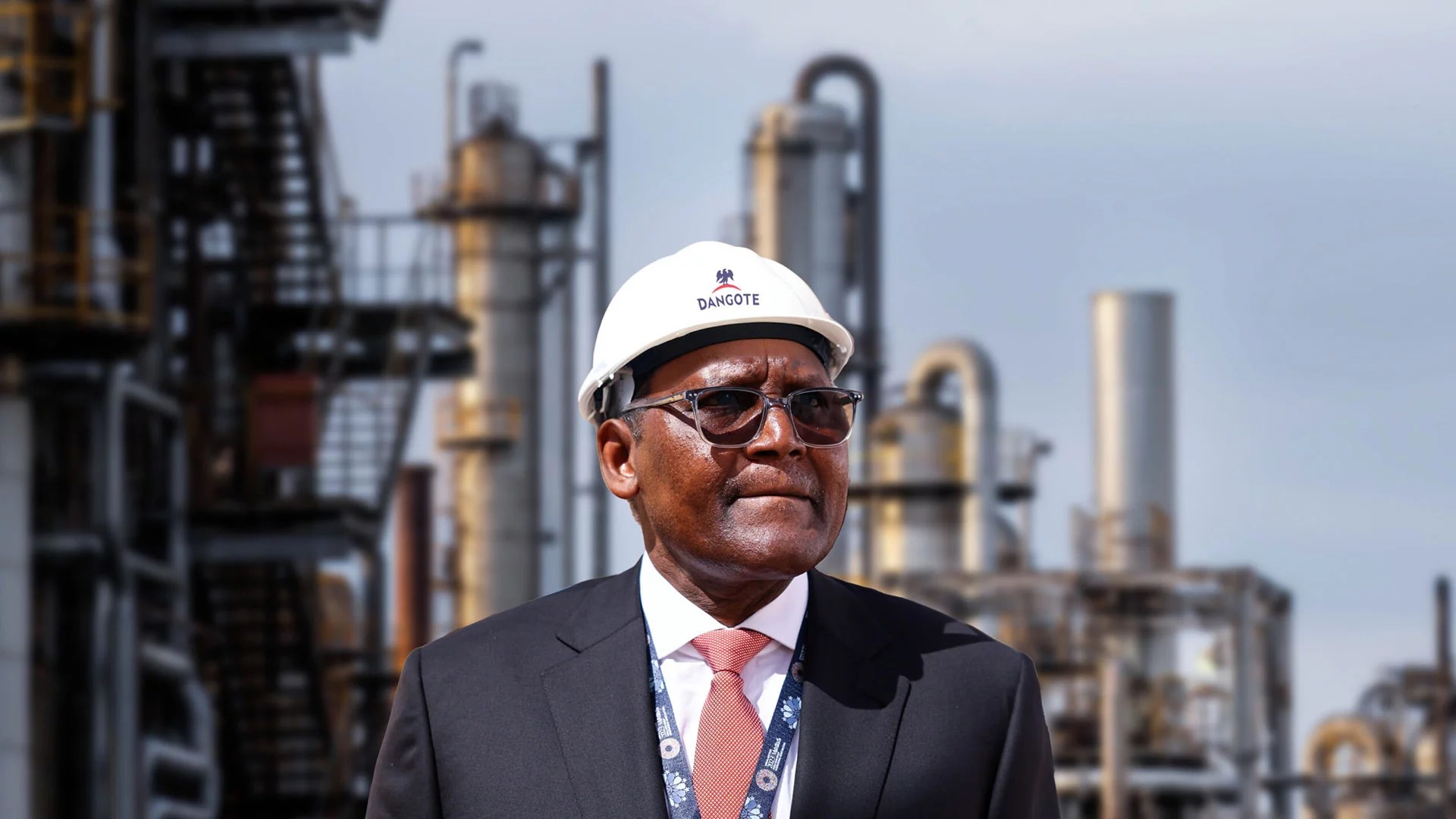
The Dangote Petroleum Refinery, located in Lekki, Lagos State, has countered reports suggesting that its petrol processing unit was temporarily closed for maintenance. A senior company spokesperson clarified that “the loading of Premium Motor Spirit (petrol) is currently in progress.”
This follows a report by Bloomberg indicating that the fuel-processing unit was undergoing repairs and had been shut down for that purpose. The report mentioned that the gasoline-manufacturing section of the Dangote refinery was indeed under maintenance.
According to Bloomberg’s sources, the residue fluid catalytic cracker was undergoing repairs. However, in an interview with our correspondent, the refinery dismissed these claims, asserting their inaccuracy.
“It is not true. Don’t believe everything you read online. Interested parties can visit the refinery to verify,” the spokesperson remarked. “The report is false. We load fuel daily, with millions of litres being dispatched. Anyone can come to the refinery and see the numerous trucks leaving. We are consistently loading millions of litres each day,” they added.
The Dangote refinery, which has a capacity of 650,000 barrels per day, has contributed to reducing fuel prices, igniting a price competition within the oil and gas sector’s downstream segment.
-

 News10 months ago
News10 months agoNUJ FCT Council Mourns The Loss of Senior Journalist, Isaiah Abraham
-

 News10 months ago
News10 months agoHURIWA Declares Governor Fubara’s Emergence as Divine, Urges Support for Rivers State’s Progress
-

 News10 months ago
News10 months agoAnioma State as panacea to South-East marginalization – By Emmanuel Onwubiko
-

 Opinion8 months ago
Opinion8 months agoNIGERIAN WOMAN IN DIASPORA, CULTURAL SHOCKS – By Stacey Ukaobasi Onwuegbuchulam
-

 News11 months ago
News11 months agoHURIWA Blames Serial Stampedes on Weaponized Poverty, Warns of Nigeria’s Rapid Decline
-
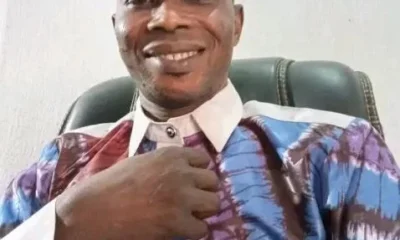
 News10 months ago
News10 months agoJealous Husband Stabs Nigerian Bishop To Death Over Suspicion Of Sleeping With Estranged Wife
-

 News10 months ago
News10 months agoTinubu sympathizes with ex-speaker Bankole on the death of his mother
-
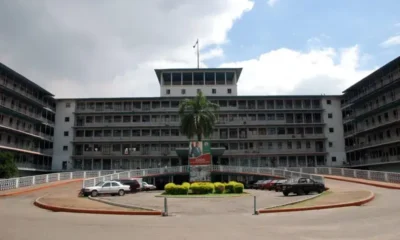
 Health8 months ago
Health8 months agoA complete list of 154 healthcare facilities across Nigeria that provide free emergency obstetric care and VVF (Vesico-Vaginal Fistula) surgeries.


